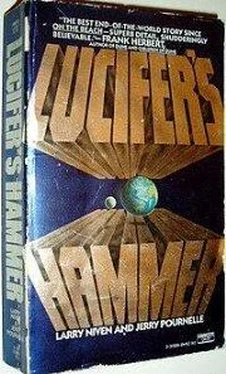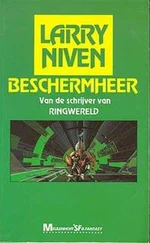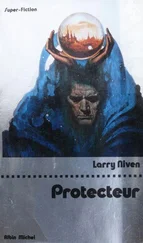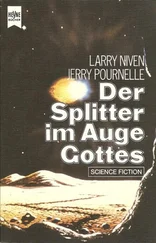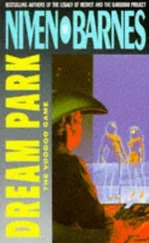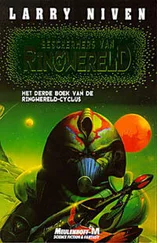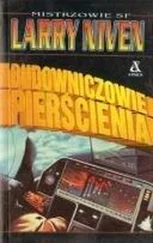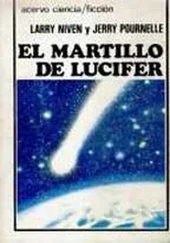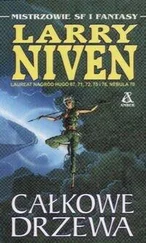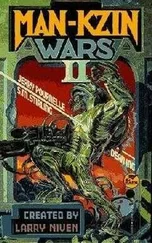Eileen made a face: mock astonishment. “How… incestuous!” They both laughed. “How did you get to be all that?”
“Picked the right grandfather. Inherited a lot of money and a company called Kalva Soap. Spent some of the money on an observatory. Found a comet. Got the company to sponsor a documentary on the comet so I could brag about it. See, it all makes perfect sense.”
“Of course, it’s all so simple now that you’ve explained it.”
“Listen, if you don’t want to give me your address—”
“Oh, I do.” She lived in a high-rise in West Los Angeles. She gave him her phone number, too. She shook his hand briskly, and said, “I have to run, but I’m really glad I met you. You’ve made my day.” And she was gone, leaving Hamner with a dazed and happy smile.
“Ragnarok,” the man said. “Armageddon.” His voice was strong, persuasive. He had a great beard, a full black beard with two tufts of pure white at the chin, and mild, kindly eyes. “The prophets of all lands saw this day coming. The Day of Judgment. The war of fire and ice is foretold by the ancients. The Hammer is ice, and it will come in fire.”
“And what do you advise?” Harvey Randall asked.
The man hesitated; he may have feared that Randall was mocking him. “Join a church. Join any church you can believe in. ‘In my father’s house are many mansions.’ The truly religious will not be turned away.”
“What would you do if Hamner-Brown happens to miss?”
“It won’t.”
Harvey turned him over to Mark and the release form, and gave Charlie the signal to pack it in. It had not been a bad day; they had a few minutes he could use, and Harvey had learned something about the mood of his viewers.
Mark came up with the form. “Went well, didn’t it. You will notice that I kept my mouth shut.”
“So you did. Nice going.”
Hamner came grinning at some private pleasure. He stowed his recording equipment in the truck and climbed aboard. “Did I miss anything?”
“Ragnarok is coming. Earth will die in fire and ice. He had the best beard I’ve ever seen. Where the hell were you?”
“Getting a release form,” said Tim. He wore that sappy smile all the way back to the lot.
From the NBS lot Tim Hamner drove to Bullocks. He knew what he was after. From there to a florist, and then to a drugstore. At the drugstore he bought sleeping pills. He was going to be keeping strange hours.
He flopped on the bed, fully dressed. He was deeply asleep when the phone rang around six-thirty. He rolled over and felt around for the receiver. “Hello?”
“Hello, I’d like to speak to Mr. Hamner, please.”
“This is me. Eileen? Sorry, I was asleep. I was going to call you.”
“Well, I beat you to it. Tim, you really know how to get a girl’s attention. The flowers are beautiful, but the vase — I mean, we’d only just met!”
He laughed. “I take it you’re a Steuben crystal fan, then. I’ve got a nice collection myself.”
“Oh?”
“I go ape over the animals.” Tim shifted to a sitting position. “I’ve got… Let’s see, a blue whale, a unicorn, a giraffe I got from my grandmother, it’s in an older style. And the Frog Prince. Have you seen the Frog Prince?”
“I’ve seen pictures of His Majesty. Hey, Tim, let me take you to dinner. There’s an unusual place called Dar Magrib.”
A man would usually pause when Eileen asked him to dinner. With Tim the pause was barely noticeable. “Mr. Hamner accepts, with thanks. Dar Magrib’s unusual, all right. Have you been there?”
“Yes. It’s very good.”
“And you were going to let me go without warning? Without telling me I’d be eating with my fingers?”
Eileen laughed. “Test your flexibility.”
“Uh-huh. Why don’t you come over here for cocktails first? I’ll introduce you to His Majesty and the other crystal” Tim told her how to get there.
Fred Lauren came home with a stack of magazines. He dropped them beside the easy chair, sank into the sagging springs and began reading the National Enquirer.
The article confirmed his worst fears. The comet was certain to hit, and nobody had any idea where. But it was going to hit in summer, and therefore (the sketch made clear) it would hit in the Northern Hemisphere. Nobody knew how massive the comet head would be, but the Enquirer said it might mean the end of the world.
And he had heard that radio preacher, that fool who was on all the stations. The end of the world was coming. His jaw tightened, and he picked up the copy of Astronomy. According to Astronomy it was a hundred thousand to one against any part of the head striking the Earth, but Fred barely noticed that. What drew him were the artist’s conceptions, infinitely vivid, of an asteroid strike sending up jets of molten magma; of an “average” asteroid poised above Los Angeles for comparison; of a comet head striking ocean, the sea bed laid bare.
The pages had grown too dark to see, but Fred didn’t think of turning on the light. Many men never believe they are going to die, but Fred believed, now. He sat in the dark until it occurred to him that Colleen must have come home, and then he went to the telescope.
The girl wasn’t in view, but the lights were on. An empty room. Fred’s eye suddenly painted it with flame. The stucco wall around the window flashed blinding light, which died slowly to reveal curtains flaming, bedclothes, couch, tablecloth and table, everything afire. Windows shattered, splinters flying. Bathroom door — opened.
The girl came out struggling into a robe. She was naked. To Fred she glowed like a saint, with a beauty almost impossible to see directly. An eternity passed before she closed the robe… and in that eternity Fred saw her bathed in the light of Hammerfall. Colleen glowed like a star, eyelids clenched futilely shut, face speckled with glass splinters, robe charring, long blonde hair crisping, blackening, flaming… and she was gone before they had met. Fred turned away from the telescope.
We can’t meet, the voice of reason told him. I know what I’d do. I can’t face prison again.
Prison? When the comet was coming to end the world? Trials took time. He’d never reach prison. He’d be dead first. Fred Lauren smiled very strangely; the muscles at the corners of his jaw were knotted tight. He’d be dead first!
By the 1790’s, philosophers and scientists were aware of many allegations that stones had fallen from the sky, but the most eminent scientists were skeptical. The first great advance came in 1794, when a German lawyer, E.F.F. Chladni, published a study of some alleged meteorites, one of which had been found after a fireball had been sighted. Chladni accepted the evidence that these meteorites had fallen from the sky and correctly inferred that they were extraterrestrial objects that were heated from falling through the earth’s atmosphere. Chladni even postulated that they might be fragments of a broken planet — an idea that set the stage for early theories about asteroids, the first of which was discovered seven years later. Chladni’s ideas were widely rejected, not because they were ill conceived, for he had been able to collect good evidence, but because his contemporaries simply were loath to accept the idea that extraterrestrial stones could f all from the sky.
William K. Hartmann, Moons and Planets: An Introduction to Planetary Science
The young man walked with a decided limp. He almost tripped on the thick rug in the big office, and Carrie, Senator Jellison’s receptionist, took his arm for a moment. He shrugged her angrily away. “Mr. Colin Saunders,” Carrie announced.
“What can I do for you?” Senator Jellison asked.
Читать дальше
